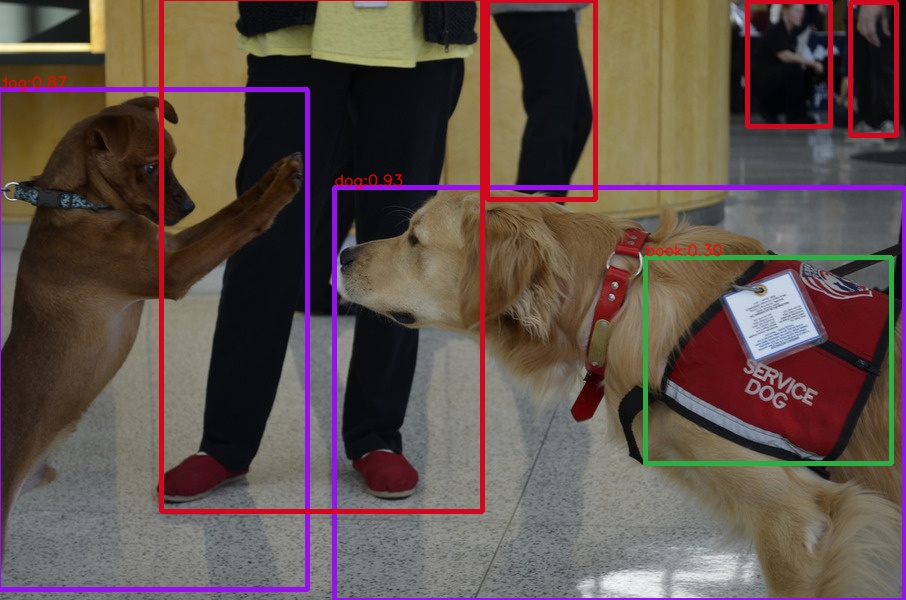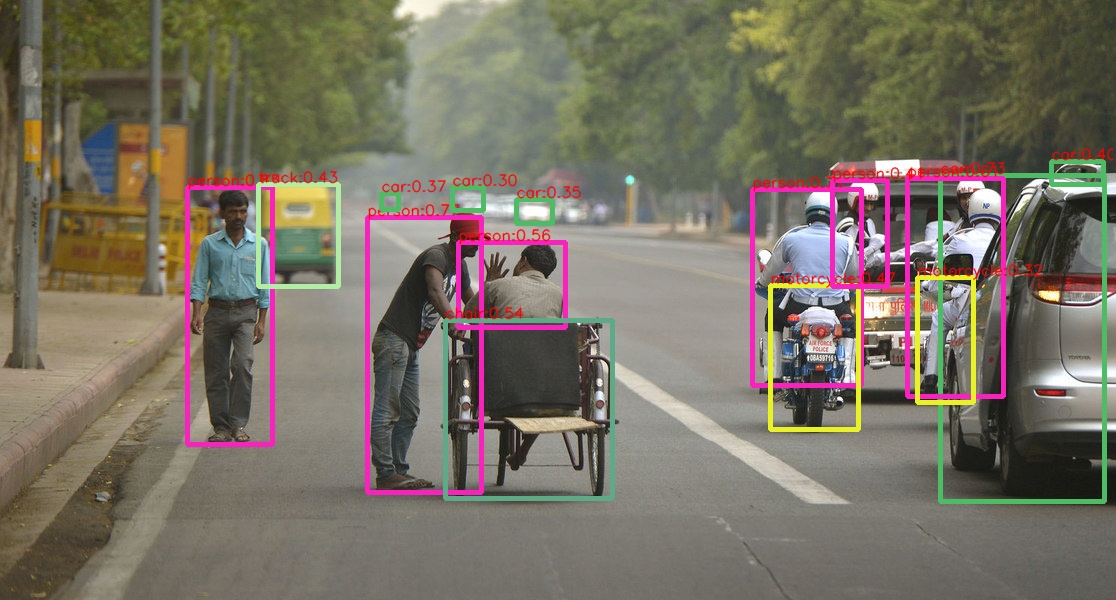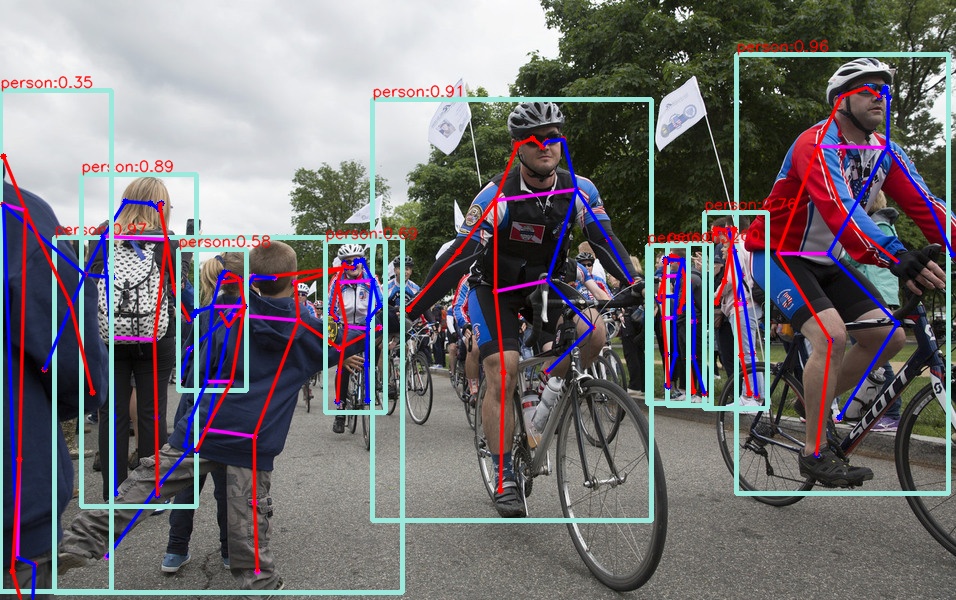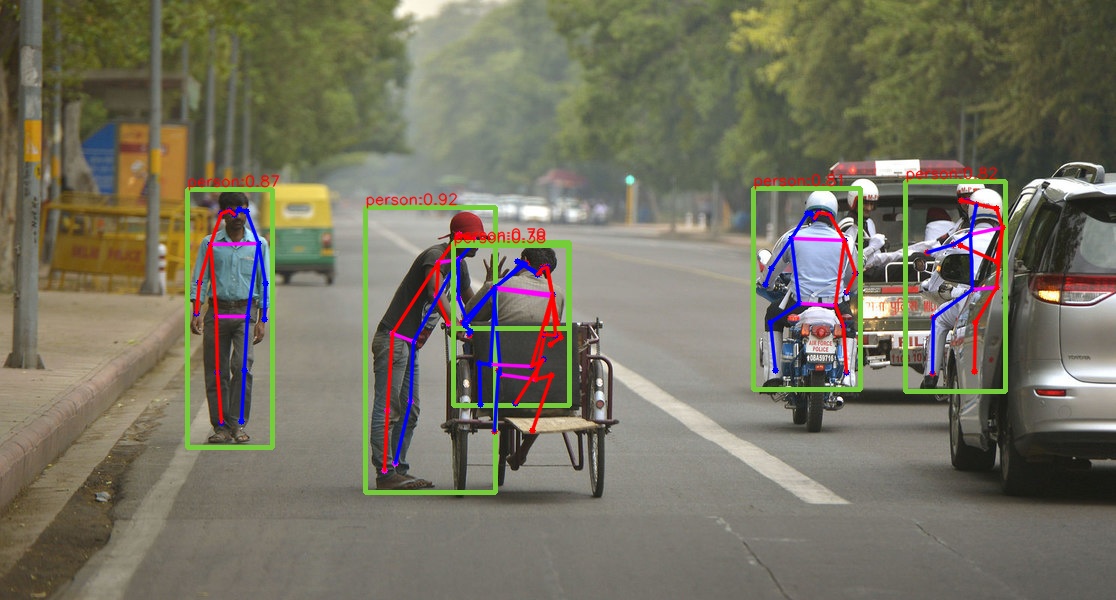This is a C++ implementation of CenterNet using TensorRT and CUDA. Thanks for the official implementation of CenterNet (Objects as Points)!
Dependencies:
- Ubuntu 16.04
- PyTorch 1.2.0 (for the compatibility of TensorRT 5 in Jetson Tx2)
- CUDA 10.0 [required]
- TensorRT-7.0.0.11 (for CUDA10.0) [required]
- CUDNN (for CUDA10.0, may not be used) [required]
- libtorch (torch c++ lib of cpu version, gpu version may conflict with the environment) [optional]
- gtest (Google C++ testing framework) [optional]
note that
- The TensorRT library must be consistent with the installed CUDA and CUDNN
- TensorRT 5 does not support dynamic shape
- TensorRT 7.0.x does not directly support the Int8 calibration with dynamic shape
- TensorRT 7.1.x supports the Int8 calibration with dynamic shape
Plugins of TensorRT:
- MyUpsampling: F.interpolate/ nn.nn.UpsamplingBilinear2d
- DCN: deformable CNN
PyTorch to onnx
Clone the repo CenterNet (Objects as Points) and download the models, then modify the backbone's outputs from
return [ret]
to
if self.training:
return [ret]
else:
hm = ret['hm'].sigmoid_()
hmax = nn.functional.max_pool2d(hm, (3, 3), stride=1, padding=1)
keep = (hmax == hm).float()
hm = hm * keep
if len(self.heads) == 3: # 2D object detection
return hm, ret['wh'], ret['reg']
elif len(self.heads) == 6: # multi_pose
wh, reg, hm_hp, hps, hp_offset = ret['wh'], ret['reg'], ret['hm_hp'], ret['hps'], ret['hp_offset']
hm_hp = hm_hp.sigmoid_()
hm_hp_max = nn.functional.max_pool2d(hm_hp, (3, 3), stride=1, padding=1)
keep = (hm_hp_max == hm_hp).float()
hm_hp = hm_hp * keep
return hm, wh, reg, hps, hm_hp, hp_offset
else:
#TODO
raise Exception("Not implemented!")
For 2D object detection, modify the function process in src/lib/detectors/ctdet.py:
with torch.no_grad():
hm, wh, reg = self.model(images)
torch.onnx.export(self.model, images, "ctdet-resdcn18.onnx", opset_version=9, verbose=False, output_names=["hm", "wh", "reg"])
quit()
For human pose estimation, modify the function process in src/lib/detectors/multi_pose.py:
hm, wh, reg, hps, hm_hp, hp_offset = self.model(images)
names=['hm', 'wh', 'reg', 'hps', 'hm_hp', 'hp_offset']
torch.onnx.export(self.model, images, "pose.onnx", opset_version=9, \
verbose=False, input_names=["input"], output_names=names)
and replace the CenterNet/src/lib/models/networks/DCNv2 with plugins_py/DCNv2.
To obtain the onnx file, run the command:
cd CenterNet/src &&\
python3 demo.py ctdet --arch resdcn_18 --demo xxxxx.jpg --load_model ../models/ctdet_coco_resdcn18.pth --debug 4 --exp_id 1
Build & Run:
- build the plugins of TensorRT:
cd onnx-tensorrt/plugin/build &&\
cmake .. &&\
make -j
you may need to explicitly specifiy the path of some libraries. To varify the correctness of plugins, set Debug mode and build with GTEST in plugin/CMakeLists.txt.
- build the
onnx-tensorrtwith this command:
cd onnx-tensorrt/build &&\
cmake .. &\
make -j
After successfully building the tool, we can convert the xxx.onnx file to serialized TensorRT engine xxxx.trt:
cd onnx-tensorrt &&\
./build/onnx2trt ctdet-resdcn18.onnx -d 16 -o ~/ctdet-resdcn18-fp16.trt
- build the inference code:
cd centernet-tensorrt/build &&\
cmake .. &&\
make -j
then, run this command to see the detection's result:
./build/ctdet_infer -g=0 -e=ctdet-resdcn18-fp16.trt -i=data.txt -o=det_res
For pose estimation, run the command:
./build/pose_infer -g=0 -e=xxxxx.trt -i=data.txt -o=pos_res
Analysis
- inference speed:
#TODO



